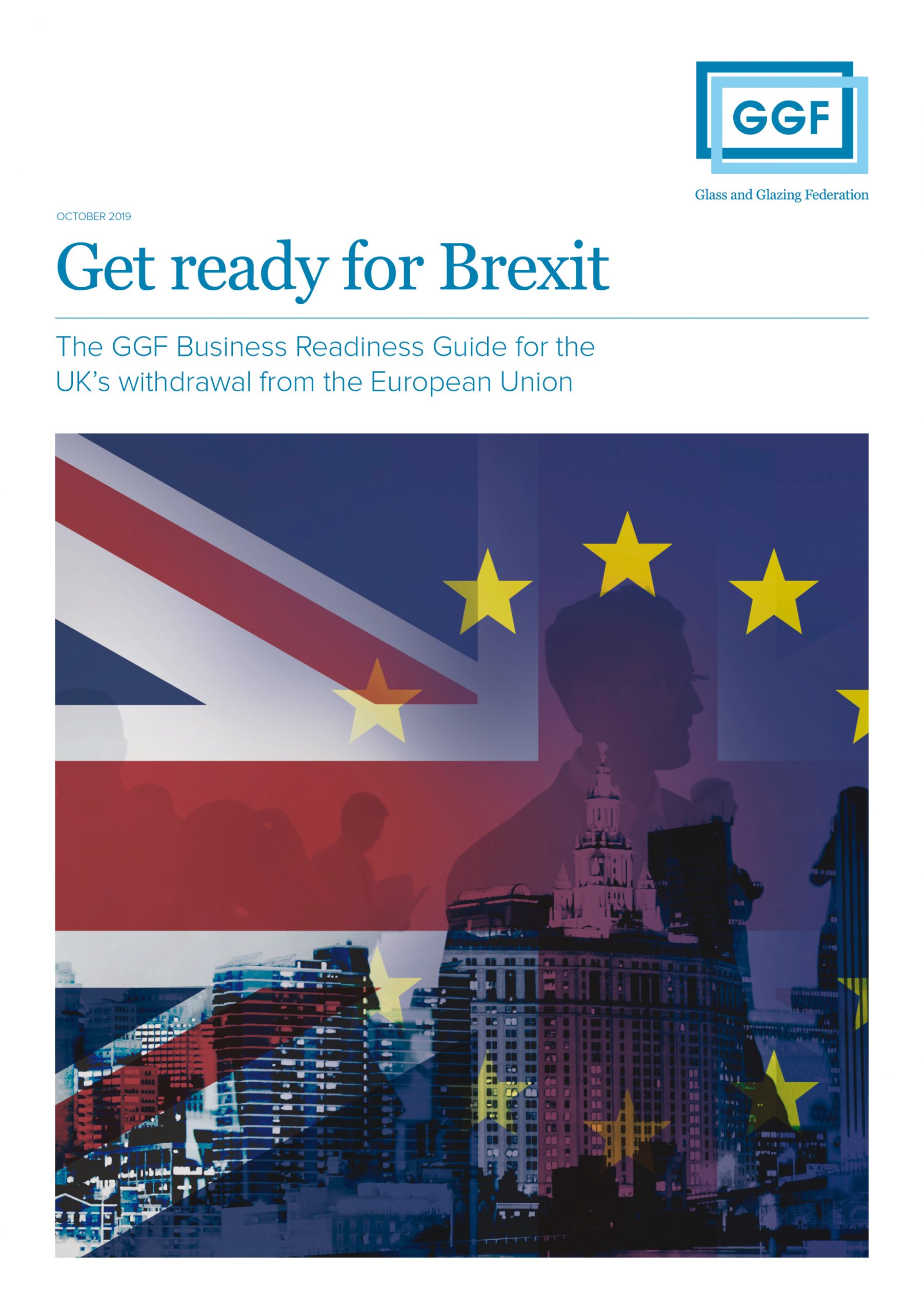Following the GGF’s Government funding for the Brexit Readiness Campaign for the Glass and Glazing industry, the GGF will now use the communication channels it has set up to ensure that companies receive up-to-date, accurate and expert guidance to help them cope with the Brexit Transition period.
The Transition Period
The UK left the European Union on 31st January, marking the beginning of the 11-month Transition Period.
During the Transition Period, the UK will remain in both the EU Customs Union and Single Market, meaning that there will be no changes to the previous trading relationship, including free movement. However, UK and EU negotiators will seek to agree a new trading relationship during the Transition Period.
The Transition Period is due to conclude on 31st December, but it could be extended if both UK and EU agree to an extension before 1st July 2020. The GGF will continue to work with Government and will relay any changes throughout the Transition Period.
Here is the latest situation between the UK and EU in terms of a trade agreement.
Negotiating positions
Prime Minister Boris Johnson and EU Chief Negotiator Michel Barnier set out their respective opening negotiating positions for the future trading relationships in early February. The statements confirmed that the EU will pursue a close trading relationship, while the UK will seek to diverge considerably from current arrangements.
EU position
- Mr Barnier said that the European Union will offer the UK tariff-free access to the Single Market, if the UK would accept EU standards on a number of issues including state aid, employment and environmental standards.
- If the UK does not agree to alignment on these issues, the EU will offer a looser arrangement which would include customs checks and tariffs on UK/EU trade.
- The EU will not offer a ‘Canada-style’ trade deal, which allows comprehensive access to the Single Market without demanding alignment on key issues.
UK position
- Prime Minister Johnson said that the UK will reject the offer of a close trading relationship with the condition of regulatory alignment.
- The Prime Minister reiterated the UK’s desire to pursue a ‘Canada-style’ arrangement. However, this isn’t possible, the UK will seek to leave the EU on World Trade Organisation (WTO) terms – the equivalent of a ‘no deal’ outcome.
It is key to note that previous EU trade negotiations have taken significantly longer than a year to conclude, with the Comprehensive Economic Trade Agreement (CETA) with Canada taking 7 years to agree. Given the two sides’ contrasting goals and the lack of time to reach an agreement, it is possible that no deal will be reached before the end of the Transition Period.
Key issues for the companies in the glass and glazing industry
As previously highlighted, nothing will change before the end of the Transition Period, and the arrangements from 1st January 2020 are subject to negotiation over the coming year. However the following is possible;
Trade arrangements
Trade arrangements for goods travelling between the EU and UK will be discussed in negotiations between the two parties.
- If the two sides are unable to reach an agreement on the trade of goods before the end of the Transition Period, EU/UK trade would be subject to tariffs and additional VAT under WTO rules. This would also necessitate additional paperwork, in the form of import declarations.
- If the sides are able to compromise on the issue of regulatory alignment, tariffs could be avoided.
The GGF will provide further updates on likely implications of the trade negotiations for the glazing sector throughout the year.
Standards
Agreements on environmental and labour standards after the Transition Period will be subject to negotiation and will be directly related to discussions on the trade of goods. The EU is aiming for alignment in these areas in exchange for free movement of goods and the UK is aiming to diverge from current standards.
For construction products standards, Government has published legislation that mirrors the current EU Construction Product Regulation (CPR) 2013, meaning that there will be no changes to standards required for construction products imported from the EU if no agreement is reached.
The GGF will continue to monitor for updates relating to changes to standards that will impact on the sector in the coming months.
Skills
When the UK leaves the EU Single Market, free movement of labour from within the EU will end and the UK will adopt a new immigration system, under which there will be no distinction between EEA and non-EEA citizens. The Government has asked the Migration Advisory Committee (MAC) to consider how a ‘points-based’ immigration system could be introduced from 2021. The GGF had input to the response on the MAC Consultation last year.
Currently, there are two types of visas for non-EEA citizens:
- Tier 1 “exceptional talent” visa: highly qualified people who need to be endorsed as a leader or emerging leader, but do not need a job offer – capped at 2,000 offers a year.
- Tier 2 visa:
- Applicant needs to match exact criteria, including having a job offer with a minimum salary of £30,000.
- Lower salary threshold if the applicant is on the so-called Shortage Occupation List.
The MAC published its recommendations in January, including:
- Government should lower the threshold for the salary needed by someone with a job offer from £30,000 to £25,600.
- Government could expand this way of entering the UK by increasing the number of points awarded to those with the most desired skills.
- The new immigration system should lower the criteria for Tier 1 applicants.
A lower salary threshold would be beneficial for the glazing industry, as it would enable more medium skilled workers to qualify. Government will consider the advice of the MAC before introducing legislation on the new immigration system later this year.
James Lee, GGF Director of External Affairs commented, “Throughout the Brexit transition period, the GGF will continue to update the industry as and when we receive the latest information. The Brexit Hub we have set up on the GGF website, is now the go to place for the industry on all the issues affecting companies during the transition period. I would advise companies to visit the Hub to keep up to speed on all the forthcoming changes that will impact on the sector in the coming months.”
To find out more please visit the GGF Brexit Hub https://www.ggf.org.uk/brexit-hub/













